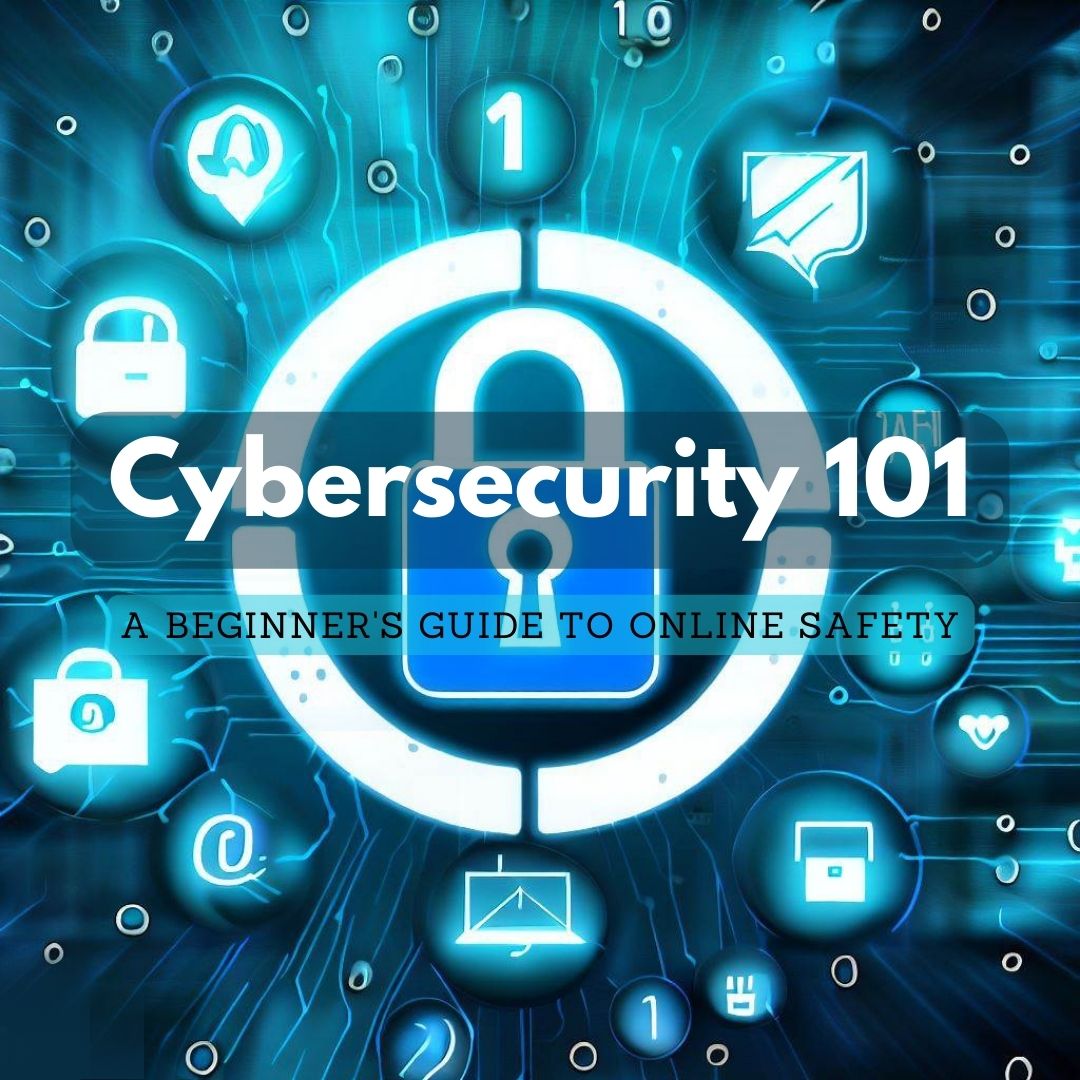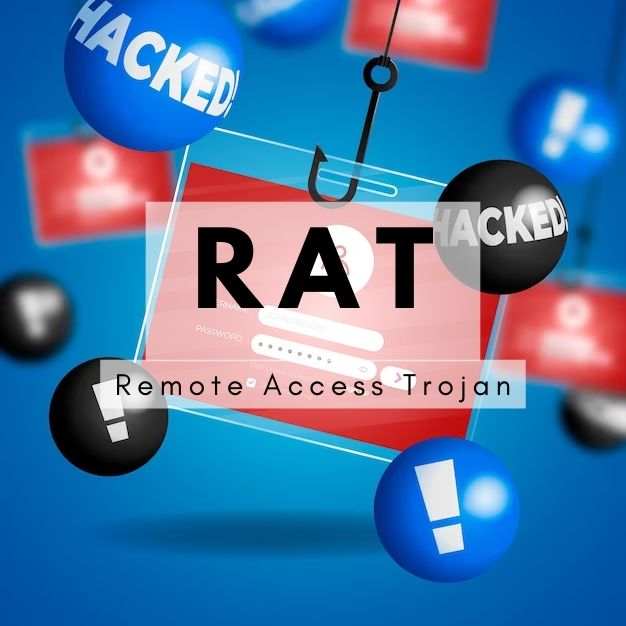Cybersecurity 101: A Beginner's Guide to Online Safety
Explore the digital wilderness with Cybersecurity 101: A Beginner's Guide to Online Safety! Learn how to spot online threats, create strong passwords, and protect your digital kingdom.
Introduction: Navigating the Digital Wilderness
In today's interconnected world, we all play a role in the vast and exciting realm of cyberspace. Whether you're a digital native or just beginning your journey online, understanding cybersecurity is crucial to safeguarding your digital life. Cybersecurity 101: A Beginner's Guide to Online Safety is your trusty map through this digital wilderness!
Are you ready to embark on this thrilling adventure? Great! We'll take you through the basics of online safety, help you spot digital pitfalls, and equip you with the knowledge to protect yourself from cyber threats. From dodging phishing scams to fortifying your passwords, we've got you covered!
So, grab your cyber-hat, and let's dive into the world of Cybersecurity 101: A Beginner's Guide to Online Safety!
Chapter 1: The Cybersecurity Landscape
What's Cybersecurity, Anyway?
Before we jump into the nitty-gritty, let's clear the fog around the term 'cybersecurity.' Essentially, it's like the digital bodyguard for your online presence! It's the practice of protecting your computer systems, networks, and data from those pesky hackers, snoopers, and digital villains lurking in the shadows.
Why Should You Care?
Now, you might wonder, "Why should I care about this stuff?" Well, consider this: Your online life is like a treasure chest filled with personal information, financial data, and cherished memories. Cybercriminals are the pirates of the digital age, eager to plunder your virtual booty! Cybersecurity is your shield against these modern-day scoundrels.
Chapter 2: Online Threats and How to Spot Them
Phishing: The Art of Deception
What's Phishing?
Imagine receiving an email that looks like it's from your bank, asking for your login details. You click the link, and voilà – you've just been 'phished'! Phishing is like digital fishing, where the bait is your personal info. Don't take the bait!
How to Spot Phishing?
-
Check the sender: Hover over the sender's email address to reveal the real deal. Scammers often use look-alike addresses.
-
Look for typos: Phishing emails often contain spelling errors or odd language choices.
-
Verify before you click: When in doubt, open a new browser tab and visit the official website directly. Don't trust random links.
-
Stay skeptical: If an email sounds too good to be true, it probably is!
Malware: The Silent Invader
What's Malware?
Malware is the digital gremlin that infects your device, stealing your data, and causing all sorts of mayhem. It can come disguised as innocent downloads, attachments, or even pop-up ads.
How to Guard Against Malware?
-
Antivirus software: Install reputable antivirus software and keep it up to date.
-
Stay updated: Regularly update your operating system and applications. Updates often contain patches to fix security holes.
-
Avoid sketchy downloads: Only download software and files from trusted sources.
-
Think before you click: Be cautious of ads and pop-ups, especially on sketchy websites.
Chapter 3: The Mighty Password
Passwords: Your Digital Keys
Passwords are like the keys to your digital kingdom. They protect your accounts, emails, and social media profiles. But here's the catch: Many people use weak, easily guessable passwords or reuse them across multiple sites. Bad idea!
Creating Strong Passwords
What Makes a Strong Password?
A strong password is like a fortress. Here's how to build one:
-
Mix it up: Use a combination of uppercase and lowercase letters, numbers, and special characters.
-
Longer is better: Aim for at least 12 characters. The longer, the stronger!
-
Unique is key: Don't reuse passwords across different sites.
-
Avoid common words: Steer clear of easily guessable phrases like "password123."
Password Manager: Your Best Friend
Remembering all those complex passwords? Yeah, right! That's where a password manager comes to the rescue. It stores your passwords securely and automatically fills them in when needed. It's like having a trustworthy butler for your online accounts.
Chapter 4: Social Media Smarts
Oversharing: The Silent Saboteur
Social Media: A Double-Edged Sword
We love sharing our lives on social media. But oversharing can be risky business. Cybersecurity 101: A Beginner's Guide to Online Safety advises you to be smart about what you post online!
Privacy Settings: Your Allies
-
Review your settings: Go through your social media privacy settings and limit who can see your posts and personal information.
-
Think before you post: Don't reveal sensitive info like your home address or phone number.
-
Beware of friend requests: Only accept requests from people you know in real life.
Chapter 5: Safe Online Shopping
Shopping Bliss or Nightmare?
Online shopping is a fantastic convenience, but it can turn into a nightmare if you're not careful. Cybersecurity 101: A Beginner's Guide to Online Safety will help you shop till you drop without dropping your guard!
Secure Payment Methods
-
Credit cards: They offer fraud protection, making it easier to dispute unauthorized charges.
-
PayPal: This service acts as a buffer between your bank account and online stores.
-
Virtual cards: Some banks offer disposable virtual credit cards for online purchases.
Check the Website
-
Look for HTTPS: Ensure the website starts with
https://– the 's' stands for secure. -
Read reviews: Check customer reviews and ratings for the seller's credibility.
-
Beware of too-good-to-be-true deals: Scammers often lure victims with unbelievable discounts.
Conclusion: Be the Cybersecurity Hero
You've reached the end of Cybersecurity 101: A Beginner's Guide to Online Safety, and you're now equipped with the tools to navigate the digital wilderness safely. Remember, the online world is vast and filled with both wonders and dangers. By practicing good cybersecurity habits, you can be the hero of your digital story, protecting your data, privacy, and peace of mind.
So go forth, fearless netizen! Share your newfound knowledge with friends and family, and together, let's make the digital realm a safer place, one click at a time. Stay safe, stay secure, and may your online adventures be nothing but extraordinary!
Share This Post
Related Articles
What is Endpoint Security: Why It Matters and How to Achieve It
Endpoint security is the practice of protecting devices and networks from unauthorized access, data theft, malware, and other threats. Endpoint security solutions typically include antivirus software, firewalls, encryption, device management, and network monitoring tools. Endpoint security is essential for ensuring the confidentiality, integrity, and availability of data and systems in an organization.
Unlocking the Secrets of RAT in Cyber Security
What is RAT in cyber security? Dive deep into the world of Remote Access Trojans, explore their risks, and learn how to protect your digital fortress!
10 Proven Cybersecurity Training Tips to Prevent Phishing and Recognize Suspicious Activities
Learn why regular security training is crucial for employees, covering best practices, phishing prevention, and recognizing and reporting suspicious activities to enhance cybersecurity.
Unlocking the Potential of IoT: A Comprehensive Exploration
Dive into the world of IoT as we unravel its intricacies, significance, benefits, standards, security concerns, and evolution. Discover how IoT is reshaping our lives and businesses!
Cloud Security
Cloud security is the practice of protecting data, applications, and infrastructure from cyberattacks and unauthorized access in the cloud. Cloud security requires a shared responsibility model between the cloud service provider and the customer, as well as the implementation of security controls, policies, and best practices. Cloud security can help organizations achieve compliance, scalability, and cost-efficiency in their cloud operations.
Related FAQ
No related FAQ.
Say Hello
To Your Dream





